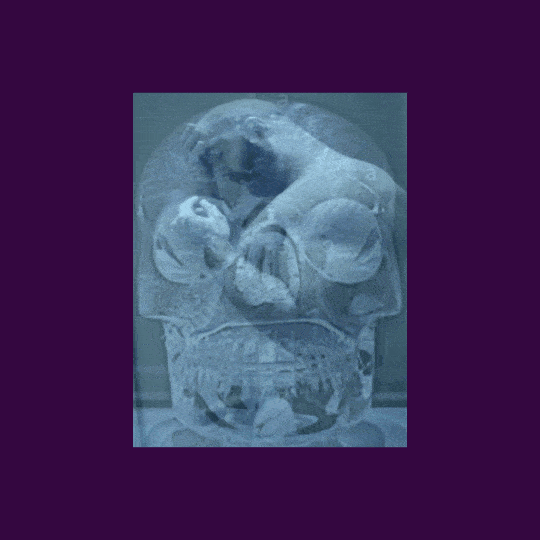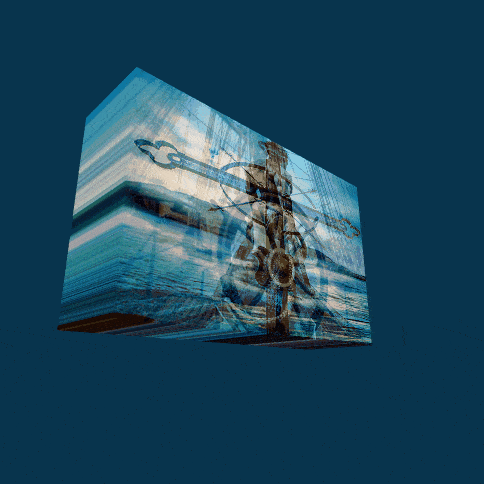Ghosting an Innovator: How 2024 Has Exposed the Dark Underbelly of French Acadian Cultural Gatekeepers
Publicly funded to promote diversity of French Acadian culture, yet stifle innovation and diversity through blatant exclusionary practices.

"Behind Closed Doors: The Racist Fed Ghosting and Silencing of Acadian Artist Theriault by a Cultural Clique."
2024: A Banner Year for Acadian Cultural Oligarchs
2024 has been a year that peeled back the layers of secrecy within the French Acadian cultural industry. Led by a tight-knit executive committee of oligarchs, this exclusive group of self-appointed gatekeepers has ruled with an iron fist over the cultural narratives presented to the Acadian public. Despite being publicly funded and tasked with promoting the full diversity of French Acadian culture, these figures have managed to stifle dissent, innovation, and diversity through blatant homophobia, racism, and exclusionary practices.

Dull
At the heart of this year's drama stands contemporary artist Claude Edwin Theriault, arguably one of his generation's most innovative French Acadian artists. While Theriault has been breaking new ground with digital art and cultural expression, his efforts have been systematically undermined by those who claim to champion Acadian heritage. Behind the polished presentations of inclusivity and community celebration lies a darker reality—a network of straight, Roman Catholic, white elites who cling to outdated values and stifle anyone who doesn’t fit their mould.
The New Face of "Ghosting as the New Racism"
What is most disturbing about the treatment of Theriault is the insidiousness of the methods used to silence him. In 2024, ghosting—a term often used in personal relationships—has taken on a new, chilling form in the cultural realm. Theriault has faced "ghosting racism," a tactic whereby the French Acadian cultural elite has deliberately erased and ignored his work, refusing to acknowledge his contributions to the wider Acadian narrative.
This goes beyond simple exclusion. They have systematically erased his contributions from public forums, media outlets, and cultural discussions by pretending that Theriault's work doesn't exist. Despite his global recognition as a trailblazing artist who blends digital and traditional mediums, Theriault's innovative projects are hidden from the Acadian public, buried under a wall of silence perpetuated by these cultural gatekeepers. It is the ultimate form of cultural ghosting: if you aren’t acknowledged, you might as well not exist.
This form of racism is particularly harmful because it denies opportunities for future generations of Acadians to witness and be inspired by creative diversity within their own culture. The message sent is clear—if you don't fit within the narrow, conservative confines of what these cultural oligarchs define as “acceptable,” you will be erased from Franco's press.

Silencing Through cease
In a shocking turn of events, 2024 saw the French Acadian cultural elite escalate their harassment of Theriault. Not content with simply ghosting him, they resorted to more direct and aggressive tactics, hiring not one but two lawyers to issue cease-and-desist letters aimed at preventing him from sharing his work and telling his story.
These legal threats serve a dual purpose: they drain the financial resources of independent artists like Theriault and create an atmosphere of fear and intimidation. By leveraging government funds to finance their legal assault, these cultural elites have exposed their true priorities. Rather than fostering an environment of open artistic expression, they are more concerned with maintaining their exclusive control over Acadian culture and history.
The fact that taxpayer money is being used to silence an Acadian artist raises serious ethical questions. Should public funds be used to prop up an insular group of cultural gatekeepers who refuse to embrace the full spectrum of Acadian identity? Why is there no public outrage or inquiry into the misuse of these resources? The Acadian public deserves to know how their money is being spent and why talented artists like Theriault are being harassed instead of celebrated.
Cultural Clique vs. Artistic Freedom
The cultural industry in Acadia has long been dominated by a small group of insiders who operate much like an exclusive clique. They quickly boast of their accolades and the supposedly inclusive nature of their projects. However, behind the public façade, they practice a form of cultural control that leaves little room for artistic innovation or diverse voices.
Theriault’s work, which intersects with digital art, music, and Acadian history, offers a fresh perspective that challenges the status quo. His projects are deeply rooted in Acadian identity but speak to a broader, global narrative of cultural hybridity, technology, and artistic freedom. Instead of embracing this new wave of creativity, the cultural oligarchs have chosen to suppress it, fearing that it could undermine their carefully curated version of Acadian heritage.
This year has made it clear that the battle lines have been drawn between those who seek to preserve a stagnant, exclusionary version of Acadian culture and those, like Theriault, pushing the boundaries of what it means to be Acadian in the 21st century.
A Closing Reflection: The Truth Must Be Told
2024 may be remembered as the year the French Acadian cultural elite went too far in their attempts to silence dissent. Their use of legal intimidation and public funds to harass Theriault is a blatant misuse of power that raises serious questions about their role as stewards of Acadian heritage.
The Acadian public should know that their cultural leaders are actively suppressing innovative voices to maintain an outdated, homogenous narrative. Theriault’s work speaks to the future of Acadian identity, which is inclusive, diverse, and unafraid of challenging traditional norms. Yet, the cultural elite remain stuck in the past, clinging to their power and using every tool to prevent the public from seeing the full spectrum of Acadian creativity.
As the dust settles from this year's controversies, it is clear that the fight for artistic freedom in Acadia is far from over. Theriault may face unprecedented opposition, but his work resonates with those who understand that art must evolve and reflect the complexities of contemporary life. The Acadian people, and indeed all those who value artistic expression, should stand behind Theriault and demand greater transparency and accountability from those who claim to represent their culture.
Frequently Asked Questions: French Acadian Cultural Controversy of 2024
1. Who is Claude Edwin Theriault, and why is he at the center of this controversy?
Claude Edwin Theriault is a contemporary French Acadian artist specializing in digital art and cultural expression. He's considered one of the most innovative artists of his generation, known for blending digital and traditional mediums in his work. Theriault is at the center of the controversy because he alleges that the French Acadian cultural elite have systematically suppressed his work through "ghosting racism" - deliberately ignoring and erasing his contributions from public forums, media outlets, and cultural discussions despite his global recognition as a trailblazing artist.
2. What is "ghosting racism," and how does it relate to this situation?
"Ghosting racism" is a term used in this context to describe a cultural suppression tactic where institutions and gatekeepers deliberately erase and ignore an artist's work by pretending it doesn't exist. According to the allegations, the French Acadian cultural elite have systematically excluded Theriault's contributions from public discourse, media coverage, and cultural discussions. This goes beyond simple exclusion - it's described as a complete erasure where "if you aren't acknowledged, you might as well not exist," effectively denying future Acadians the opportunity to witness creative diversity within their culture.
3. What legal actions have been taken against Claude Edwin Theriault?
In 2024, the French Acadian cultural elite allegedly escalated their campaign against Theriault by hiring two lawyers to issue cease-and-desist letters to prevent him from sharing his work and telling his story. These legal threats are described as serving a dual purpose: draining the financial resources of the independent artist and creating an atmosphere of fear and intimidation. The controversy deepens with allegations that government funds were used to finance these legal actions, raising ethical questions about using taxpayer money to silence an artist.
4. What are the main criticisms against the French Acadian cultural industry?
The primary criticisms include allegations of exclusionary practices, homophobia, racism, and the creation of a cultural oligarchy that stifles innovation and diversity. Critics claim that despite being publicly funded and tasked with promoting the full diversity of French Acadian culture, a tight-knit group of "self-appointed gatekeepers" has ruled with an "iron fist" over cultural narratives. The industry is accused of being dominated by "straight, Roman Catholic, white elites who cling to outdated values" and operate like an exclusive clique that suppresses voices that don't fit their narrow definition of "acceptable" Acadian culture.
5. What broader implications does this controversy have for Acadian cultural identity?
This controversy represents a larger battle over the future direction of Acadian cultural identity in the 21st century. On one side are those who allegedly seek to preserve what critics call a "stagnant, exclusionary version of Acadian culture," while on the other are artists like Theriault who are "pushing the boundaries of what it means to be Acadian" through work that embraces cultural hybridity, technology, and artistic freedom. The controversy raises questions about whether Acadian culture should remain within traditional confines or evolve to reflect contemporary complexities, including inclusivity, diversity, and the role of technology in cultural expression.


